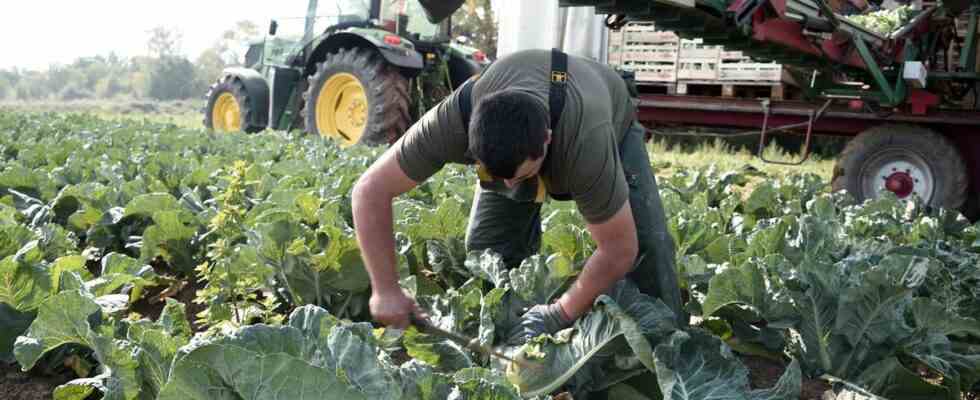It rained a little in August in Saint-Malo. In the middle of a scorching summer, stormy showers fed the dry vegetation, yellowed by the total absence of rain. To think that these few millimeters of blessing from the Breton sky will settle the issue of drought would however be a mistake. Worried about the lack of water, the Water union of the country of Saint-Malo does not stop shouting it. Without precipitation in September and October, the Emerald Coast could lack drinking water this fall due to the continuous lowering of water reservoirs in northern Ille-et-Vilaine.
In this highly touristic territory, the union has been able to count on the efforts of many individuals and companies to reduce consumption. But the situation remains worrying, especially since the sector is home to a large number of market gardening professionals. Often equipped with rainwater harvesting systems, vegetable growers have drawn on their resources but have had no choice but to water their crops, under penalty of losing all their production. While it is now forbidden for individuals to water potted plants (only vegetable gardens are authorized at night), certain agricultural professionals benefit from derogations to irrigate their crops. “Let them water. If they don’t, there will be no vegetables this winter,” warns Laëtitia Bouvier, general secretary of the FDSEA 35.
“The worst potato harvest”
His union has already drawn up an alarming assessment of the drop in productivity linked to the drought. Losses vary between 20 and 50% in cabbage crops. Potatoes ? The National Union of Producers expectsthe worst harvest to come since 2000”. Same observation for carrots or beets which have risen very badly due to the lack of water. Beans ? They were full of seeds and yarn in July and are now showing “catastrophic yields of only around 30% of forecast”, according to the FDSEA.
“The lands of the Saint-Malo basin are very sandy, they do not retain water. They need to be able to water a little. They do it in the evening, in small quantities. And this water is not wasted, it returns to the earth, ”said Cédric Henry, departmental president of the majority union.
While the drought continues, the FDSEA also hopes to weigh in on the debates to improve the storage of rainwater accumulated in winter, in order to better irrigate in summer. A measure that has its opponents. Indeed, retaining the so-called effective winter rains can weaken the water tables, which do not recharge between March and November. In Charente-Maritime, many demonstrations have been organized to oppose the creation of these giant basins. “It’s an obstacle course to obtain authorizations”, warns the agricultural union. The subject is far from settled.

